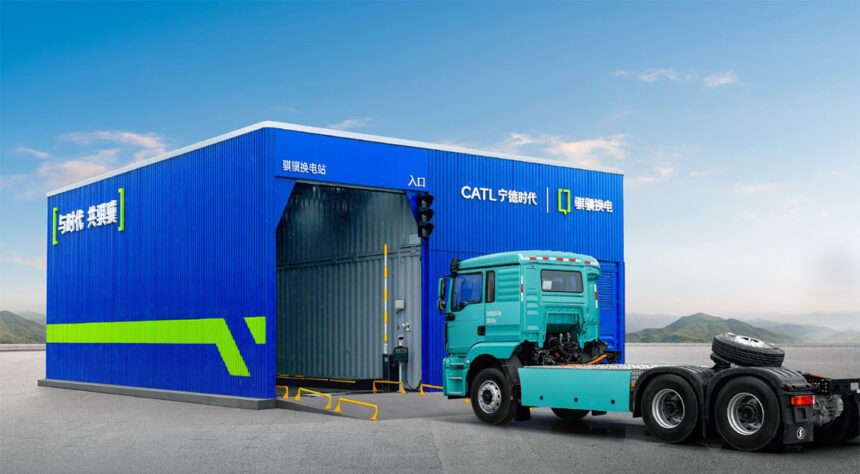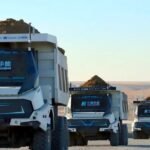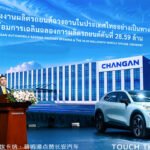CATL, a leading power battery maker, has recently unveiled a standardized battery pack for battery swap-enabled heavy-duty trucks, marking a significant step in advancing electric vehicle technology in the transportation industry. This new development follows a similar move made by the company for the passenger car segment back in December.
The launch event for the “75#” standardized battery swap block took place on May 18 in Datong, Shanxi province, where CATL showcased the industry’s highest level of long lifespan and flexibility in pack selection for heavy-duty trucks. Yang Jun, CEO of Qiji Energy, a unit of CATL, emphasized the benefits of this new battery swap technology, highlighting its compatibility with a wide range of vehicles.
CATL’s commitment to battery swap technology is further evidenced by the establishment of Qiji Energy in June 2023, dedicated to promoting battery swap solutions in the heavy truck sector. With over 30 battery swap-enabled heavy truck models already launched in collaboration with various vehicle manufacturers, CATL is paving the way for a more sustainable and efficient transportation ecosystem.
The cost-effectiveness of battery swap-enabled heavy trucks is another key advantage highlighted by CATL. Compared to traditional fuel-powered and LNG-powered heavy trucks, vehicles utilizing Qiji Energy’s chassis battery swap technology can save significant operational costs over a distance of 100,000 kilometers. This cost savings, coupled with the reduced dependency on fluctuating LNG prices, positions battery swap technology as a compelling solution for the logistics industry.
Looking ahead, CATL is optimistic about the future of battery swap technology, both in passenger cars and heavy trucks. By 2030, the company envisions a balanced distribution of replenishment methods for EV owners, with battery swap, at-home charging, and public charging stations each playing a significant role.
Furthermore, CATL’s chairman and CEO, Robin Zeng, predicts a rapid electrification rate of 50 percent in the heavy truck industry over the next three years. This growth is driven by the industry’s transition towards zero-carbon solutions and the pressing need to reduce logistics costs.
To support this ambitious vision, CATL plans to establish 300 battery swap stations for heavy trucks across 13 core regions in China by the end of 2025. By 2030, the company aims to expand its battery swap network to cover 16 city clusters, further solidifying its position as a leader in sustainable transportation solutions.
In conclusion, CATL’s latest advancements in battery swap technology underscore its unwavering commitment to driving innovation in the electric vehicle industry. With a strong focus on efficiency, cost-effectiveness, and sustainability, CATL is poised to shape the future of transportation through cutting-edge battery swap solutions.







